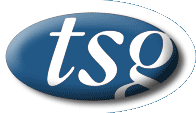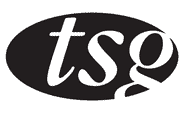|
Service Areas
|
Tax Tips
In Tax Tips, 12-28, 12-18, 12-02, 11-09, 11-06 and 11-05, we outlined the various issues that non-compliant U.S. persons (citizens, residents and green card holders) face and alternatives available to bring U.S. filings up to date. U.S. citizens and residents have always had the obligation to file U.S. personal income tax returns and various information returns to the United States Treasury (IRS or FinCEN). Many Canadian residents, who are U.S. persons, were unaware of this filing obligation. U.S. legislation that will come into force on July 1, 2014 will flush out more U.S. persons with non U.S. investment accounts. In the March 18, 2010 Hiring Incentives to Restore Employment (HIRE) Act, the U.S enacted the Foreign Account Tax Compliance Act (FATCA) to require foreign financial institutions (FFI's) and entities such as banks and investment firms, to report information on all their U.S. account holders to the IRS. If a FFI does not enter into an agreement to report this information directly to the IRS, the FFI will be subject to a 30% withholding tax on certain U.S. source payments received by the FFI. The implementation of FATCA has been deferred a number of times as the International banking community and foreign governments have opposed the intrusiveness of the legislation, its legality and how to handle the breaches of domestic privacy law it creates. There will be no more delays as the U.S. has now set a firm implementation date of July 1, 2014. Although FFI's have been concerned about breaches of privacy laws FATCA would impose on them, U.S. law makers were not sympathetic. On February 5, 2014, the Canadian Department of Finance announced that Canada and the United States had signed a Model 1 Intergovernmental Agreement (IGA) that solves the privacy law issues for Canadian FFI's. With the IGA, Canadian FFI's will be required to report the information required by FATCA to the Canada Revenue Agency, who, in turn, will share it with the IRS through the relevant provisions of the Canada-United States Tax Convention (1980). If they have not yet done so, Canadian FFI's will be asking their customers about their U.S. status in order to comply with FATCA. Non-Canadian FFI's will also be asking about your U.S. status as they must also comply with FATCA. Canadian FFI's will not be required to report information related to RRSP's, RRIF's, RESP's, RDSP's and TFSA's to the CRA. The IGA also provides exemptions for small deposit-taking institutions (assets less than $175 million) such as Credit Unions. U.S. taxpayers, however, will still be required to report the relevant information on their U.S. personal tax returns and reports on foreign bank accounts (FBAR's). FATCA will allow the IRS to detect tax evasion as well as identify non-compliant U.S. persons living abroad. The gathered information will allow the IRS to match a U.S. person's actual foreign income with what is reported on their U.S. personal tax return (or identify that a return was not even filed). Starting July 1, 2014, there will be fewer places for U.S. persons to hide from the IRS (even if non-compliance is innocent). If you have not complied with your U.S. filing obligations you can minimize or manage your exposure to penalties by bringing your filings up to date before the IRS contacts you. We would be happy to discuss your option with you. TAX TIP OF THE WEEK is provided as a free service to clients and friends of the Tax Specialist Group member firms. The Tax Specialist Group is a national affiliation of firms who specialize in providing tax consulting services to other professionals, businesses and high net worth individuals on Canadian and international tax matters and tax disputes. |


